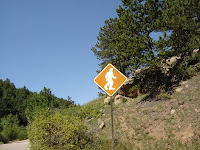Here’s some advice from non-profit consultant and grant writing expert, Derek Link, on preparing for the grant writing process and staying focused while you work on your grant:
It is entirely possible that as you read this that you are either taking a break from writing a grant, or that you are seeking inspiration as you prepare to write one. In either case, you are probably experiencing the anticipation of mental engagement with a narrative that becomes a consuming process throughout the narrative creation.
The grant writing process is mentally challenging so it’s wise to prepare yourself before you write and to think ahead about your writing process.
Here are some things I do that may be helpful for you to consider:
- Get enough sleep. You won’t get more quality writing done by staying up later.
- Eat the right foods. If you’re hungry or spaced out on Twinkies, your narrative may go off track.
- Take your normal exercise. Sitting and writing is hard on the body and if you get uncomfortable, it’s harder to write well.
- Set up a low distraction, comfortable place to write. No unneeded electronics, no kids chirping for snacks; it’s time to isolate and focus. Use good lighting and acomfortable chair. Have some snacks and beverages at the ready.
- Be organized before writing. Nothing is worse than getting into a rhythm on a narrative only to come to a screeching halt because some key piece wasn’t anticipated and is missing and since it is Saturday as you write, there’s no way to get it ‘til Monday.
- Set a realistic goal for the day. Know how much you want to complete of the narrative so you feel good about your writing. Finishing the narrative should only be your goal once. ( OK, maybe twice)!
- Go somewhere else to read your drafts. Two things I like to do with my drafts after I print one out to review: a) I like to go somewhere else to read it like a coffee shop or outdoors in summer, and b) I like to read it out loud to myself since I often get too close to the narrative to hear it in my head after a while.
Remember the dog in the animated cartoon “Up” that is introducing himself and suddenly a squirrel distracts him? Well you don’t need too many squirrels in your day to take you off-task while writing. Getting ready to write requires that you plan ahead to minimize distractions as much as possible, life happens but the squirrels can sometimes be kept at bay.
———————–
Related Posts:
Time Management Tips for Grant Writers
Form a Grant Planning Committee
Facing the Blank Page
Relax….and Tell Your Story
———————-
Try our GrantTips iPhone App!
———————-





